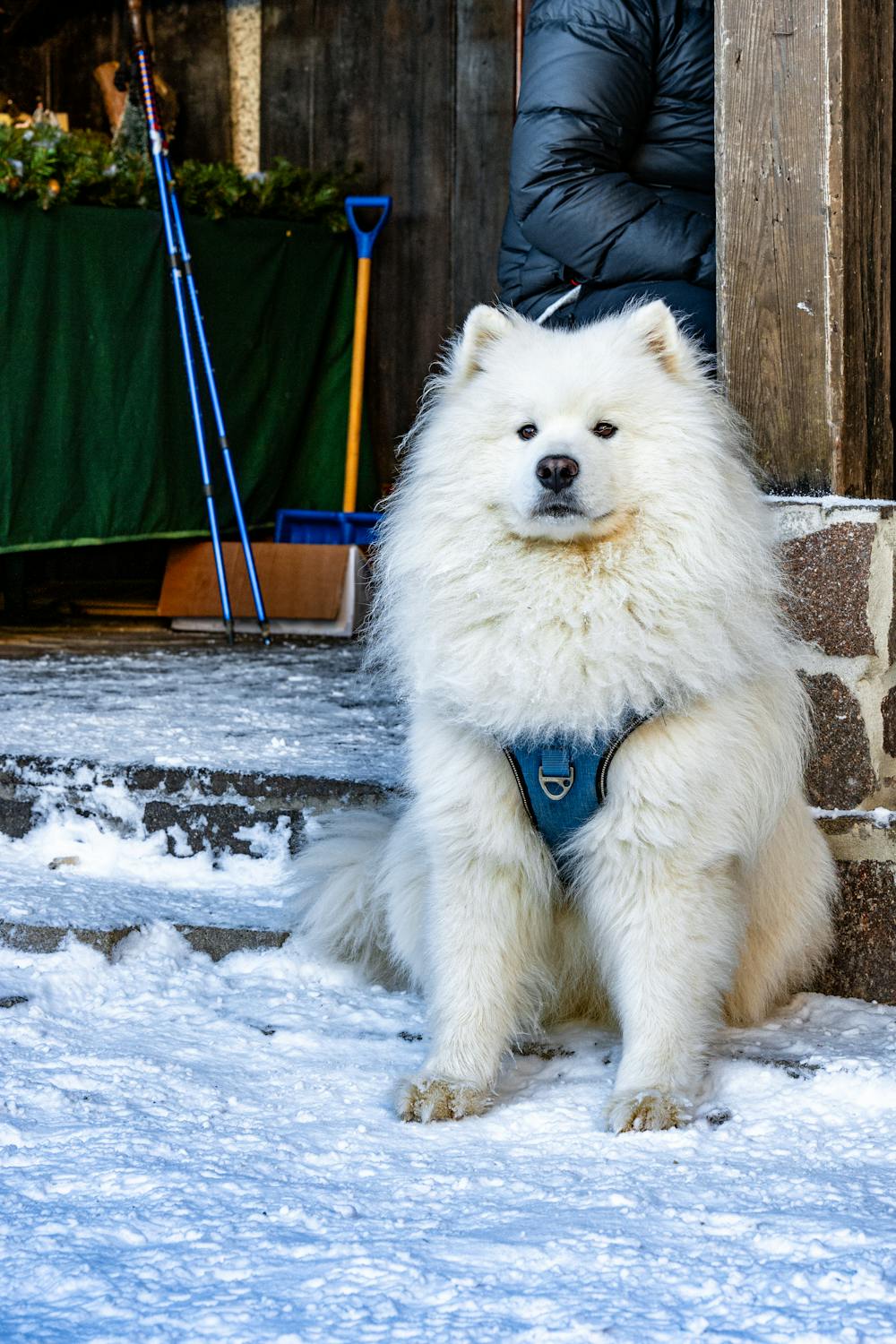

The Samoyed is a medium-sized breed of dog from Siberia, named after the nomadic Samoyedic peoples. They were bred for herding reindeer and tending sleds. This breed is well-behaved and usually shows a characteristic "smile." They also prove an excellent friend for families with children and other pets. Their distinctively long, white double coats serve as visual insulation from the cold weather.
Life Span
Size
Exercise
Breed Group
Grooming
Coat Type
Samoyeds are friendly, gentle, and intelligent family companions. They bond closely with their owners and do well with children, acting as both protectors and playmates. With high energy levels, Samoyeds require ample daily exercise to remain happy and prevent destructive behavior. They are non-aggressive and welcoming toward guests, though they may be reserved around unfamiliar dogs. Despite occasional stubbornness, they respond well to structured training with positive reinforcement. Due to their affectionate nature, they are prone to separation anxiety if left alone for long periods.
Samoyeds need at least one hour of vigorous daily exercise. They are intelligent and quick learners but can be stubborn, making consistent training essential. Early training and recall commands are crucial to prevent wandering. Samoyeds thrive on structured physical and mental activities, such as hikes, fetch, tug-of-war, agility training, and interactive puzzle games. Keeping training sessions varied and engaging helps maintain their attention and focus.
Samoyeds are generally healthy but prone to certain conditions:
Hip Dysplasia: A genetic condition affecting joint health, best managed through weight control and responsible breeding.
Uveodermatologic Syndrome (UDS): Causes inflammation in the eyes and skin. Lifelong management may be required.
Samoyed Hereditary Glomerulopathy: A genetic kidney disease requiring monitoring through genetic testing.
Diabetes Mellitus: Often linked to chronic pancreatitis. Managed through diet, insulin therapy, and veterinary care.
Heart Problems: Regular heart screenings help detect early signs of aortic and pulmonic valve stenosis.
Samoyeds have a thick double coat consisting of a soft undercoat and a coarse outer coat. Their coat requires frequent grooming to prevent matting and maintain cleanliness. Samoyeds shed year-round, with heavy seasonal shedding during spring and fall. Brushing at least every other day helps control loose hair. A slicker brush and undercoat rake are useful tools for detangling their dense coat. Bathing is recommended every 4 to 6 weeks, with brushing before and after to reduce tangles. Regular ear cleaning prevents infections, and checking for fleas, ticks, and other parasites is essential, especially after outdoor activities. Monitoring for wax buildup, eye discharge, and skin irritation is also recommended.
Samoyeds require a balanced diet that supports their energy levels and coat health. Their diet should include high-quality protein sources, such as chicken, fish, or lamb, to maintain muscle mass. Healthy fats, including omega-3 and omega-6 fatty acids, support skin and coat health. Complex carbohydrates, such as sweet potatoes or brown rice, provide sustained energy. An adult Samoyed typically needs 2.5 to 3 cups of high-quality dry food per day, divided into two meals. Puppies require more frequent feedings, with meals spread over three to four portions throughout the day. Weight monitoring is crucial, as Samoyeds are prone to obesity. Treats should be limited to 10% of their daily intake, and fresh water should always be available.